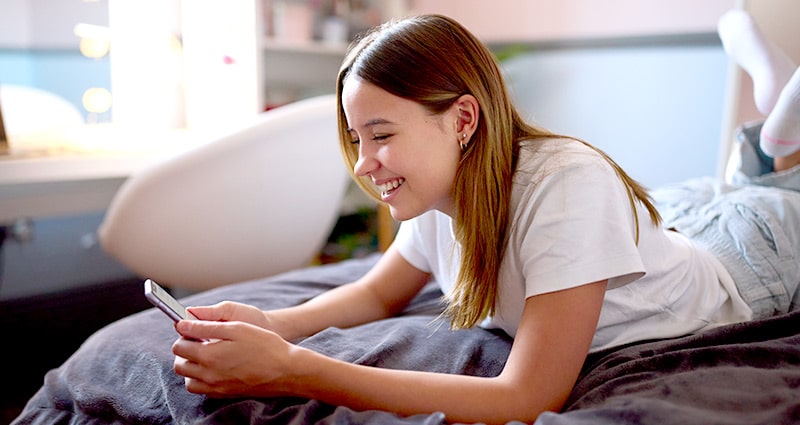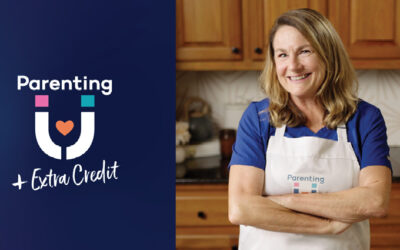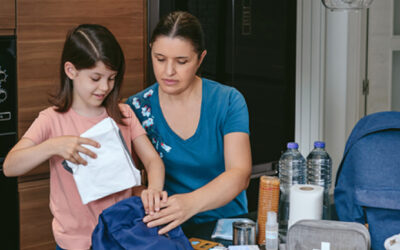A big part of parenting tweens and teens is educating ourselves about the latest social media apps and spotting potential pitfalls before our children get hurt. From simple embarrassment to much more dangerous situations, the risks of social media and other app use are real.
Most teens use social media, and while there are good things that come from such use, there are also risks and things to avoid. Having open, ongoing conversations about social media use can help keep kids safer and families more connected.
The Good
Staying connected to family and friends is a primary function of social media. It also provides users the opportunity to get connected to projects, causes and organizations. Social media can be a creative outlet to share ideas, music and art. Certain apps are also used as part of education, and it’s important for all of us to learn to responsibly use social media.
The Risks
Cyberbullying and online predators are the most top-of-mind risks. Using real names with photos and information about their school or where they live can create the risk of a real-life, physical encounter with the wrong person.
Content lives on forever, and once it’s posted it can’t be taken back. Even if something gets deleted, it’s impossible to completely erase anything from the internet. Posting inappropriate content can damage a reputation and have consequences later when applying for college or a job.
Spending too much time on social media certainly impacts mental health. The constant comparisons—number of followers/friends and comparing yourself to filtered versions of others’ lives—is hard for everyone who uses social media. Encourage young users to find balance and connect with their friends in ways outside of apps and the internet.
Family Agreement
Consider creating an actual document with your kids as they start getting connected online. Set clear expectations about how they can protect their own privacy, consider their reputation, and not give out personal information. It’s also a place to promise not to use technology to hurt others through bullying or gossip.
In return you as a parent might also agree to respect their privacy while being part of their social media world. Be “friends” on apps, keeping an eye on their interactions, but don’t post embarrassing comments or share information about them without permission.
Some specific ideas to include in a “contract” include:
- Be kind—mean behavior is never OK, even if you’re joking
- Think twice before posting, and never share locations or phone numbers on social media
- Imagine your grandma or another respected elder is reading your post—don’t post anything you wouldn’t want your teachers, college admissions officers, future bosses and family to see
- Set up privacy settings together and use strong passwords, never sharing or reusing them
- Only connect with people you know in real life
Device Management
Keep kids grounded in the real world with limits on where phones and laptops can be used and when. Set up a charging station in a common room to avoid devices interfering with much-needed sleep. (This is a good rule for parents to follow, too.)
Download Ten Apps Parents Need to Know to start or continue conversations with your children, expressing your concerns and listening to their feelings. By empowering them to use these apps safely—and knowing which apps to simply avoid—they will be more equipped to take on adulthood when the time comes.
One to Grow On
Pediatrician Melissa Eddy-Shelby, MD, shares some tips for creating healthy digital habits with your children (they are good for parents too!)
A relationship with a pediatrician is important for your child’s health. Connect with one of our exceptional providers.
-
Find a pediatric provider in Baton Rouge.
-
Find a pediatric provider in Acadiana.
-
Find a pediatric provider in Northeast Louisiana.
-
Find a pediatric provider in Bogalusa.




